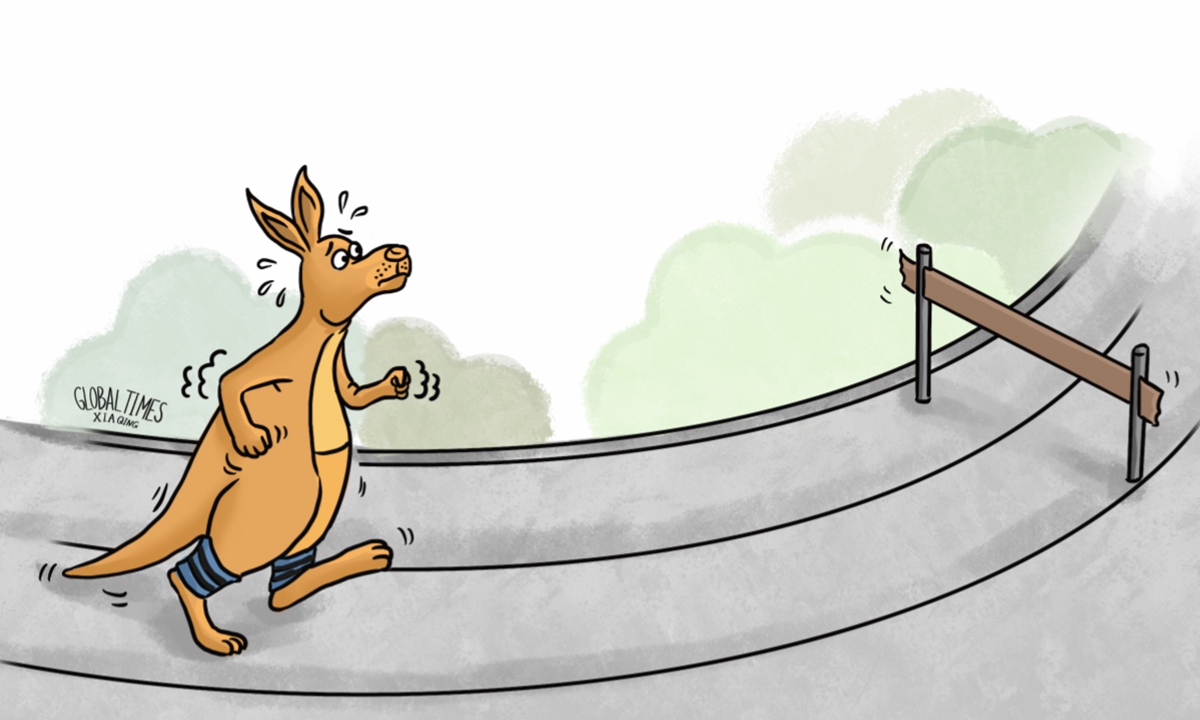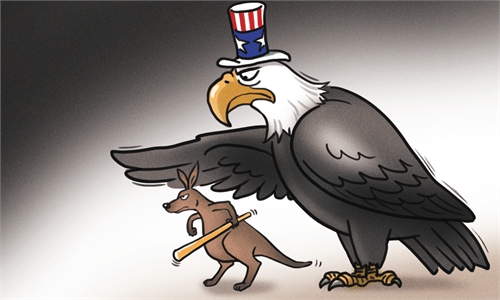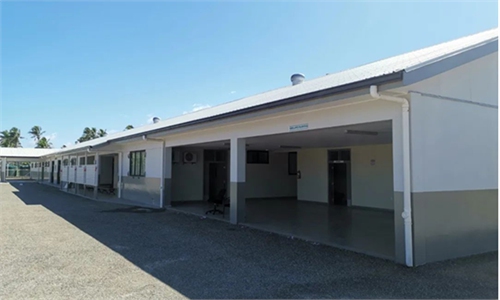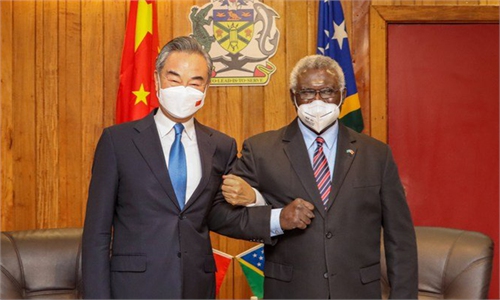
Illustration: Xia Qing/Global Times
Former Australian defense minister Peter Dutton, who is now the newly elected Liberal Party leader, appears to be carrying the torch of defeated former Prime Minister Scott Morrison's approach of unreasonable hostility and provocation against China, as he recently reiterated that China is the "biggest issue" facing Australia.Dutton's remarks carry no weight, but it can serve as a reminder of the failure of the former Australian administration's hostile approach toward China. Morrison's election defeat has already proved that his tough rhetoric toward China is no path to election victory. Australian voters care more about issues related to people's well-being than the "China threat" manufactured by politicians.
How to restore the economy is the "biggest issue" facing Australia. The Australian economy has been battered by the COVID-19 pandemic and coping with issues like inflation and the rising costs of living. Australia's economic woes are due in part to troubles with its biggest trading partner. According to Chinese customs data, Australia's exports to China dropped 13 percent year-on-year in the first four months of this year, while imports from China increased 22 percent at the same time.
It's a waste of time to play up the so-called "China threat," instead of working to bolster trade with China. Wouldn't it be better if Australian politicians could pay more attention to bumping up exports and injecting new vitality into Australia's export-oriented economy?
The Morrison government adopted an array of tough China policies on issues ranging from 5G communications to people-to-people exchanges. Geopolitics played an important role in the Morrison government's foreign economic policy, and this situation should be changed under the leadership of Prime Minister Anthony Albanese and his new government. Whether Albanese's government can take a step forward in separating economics from geopolitics will be critical to restoring Chinese investors' confidence in the Australian economy.
Currently, observers generally believe that Chinese enterprises, including Huawei, will continue to be blocked out from Australia's 5G roll-out. If the new government can abandon the hawkish anti-China stance and allow Huawei to compete fairly with other brands to participate in Australia's 5G build, people will soon feel the new government's determination to restore the Australian economy by offering fair treatment to foreign firms.
Although some media outlets are keen on playing up the risks of the COVID-19 pandemic to the Chinese economy, it should be easy for any fair-minded person to understand that the Chinese economy remains vibrant and dynamic. The epidemic outbreak has posed some short-term difficulties, but it hasn't hurt the fundamentals of the Chinese economy. A healthy relationship with the world's second-largest economy can help Australia cope with its current economic difficulties and lift GDP growth.
In considering Australia's own interests, Australian leaders should maintain strategic sobriety and give top priority to improving living standards, instead of focusing on geopolitical games and playing up the China threat theory. If they follow the footsteps of Morrison and Dutton in focusing on escalating tension with China, instead of paying attention to the Australian economy, they will end up nowhere but in failure.
The author is a reporter with the Global Times. bizopinion@globaltimes.com.cn



